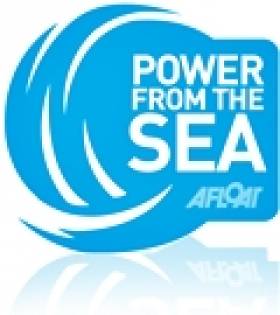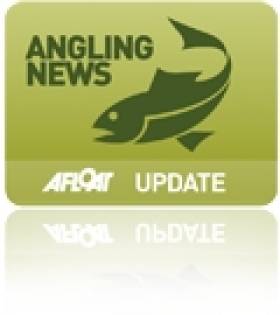Displaying items by tag: Eddie O'Connor
Tributes Paid to Renewable Energy "Visionary" Eddie O'Connor
Minister for the Environment Eamon Ryan has paid tribute to businessman and renewable energy developer Eddie O’Connor, who has died at age 76 after an illness.
The former Bord na Móna chief executive, who had trained as a chemical engineer and worked with the ESB, was founder of renewable energy company, Airtricity in 1997.
He was also a joint founder of Mainstream Renewables and SuperNode, and was latterly advocating for a European “supergrid” for renewable energy.
One of his first renewable projects was construction by Bord na Móna of Ireland’s first commercial wind farm at Bellacorick in north Mayo in 1992.
During his time at Airtricity, which was sold for 1.8 billion euro to SSE in 2008, he oversaw construction of Ireland’s first offshore windfarm, located on the Arklow Bank off the Wicklow coast.
Mainstream Renewable Power, focusing on wind and solar power, is now a leading international company with projects across the world.
A 75 per cent stake in it was sold to Norwegian firm Aker Horizons in 2021 for 1 billion euro, which reportedly realised over 500 million euro for O’Connor.
Last year he published “Supergrid – Super Solution: The Key to Solving the Energy Crisis and Decarbonising Europe” which was co-authored with Kevin O’Sullivan, Irish Times environment and science editor.
He received many awards and was both a keen boater and angler. One of his prize catches included a Spring salmon weighing 9.2kg (20lbs 4oz) at Foxford fishery on Mayo’s river Moy in 2011.
 Eddie O'Connor (left ) caught this magnificent specimen spring salmon of 9.2kg (20lbs 4oz) at Foxford fishery on the River Moy in County Mayo in 2011. Foxford fishery ghillie Vincent McDonnell is pictured right.
Eddie O'Connor (left ) caught this magnificent specimen spring salmon of 9.2kg (20lbs 4oz) at Foxford fishery on the River Moy in County Mayo in 2011. Foxford fishery ghillie Vincent McDonnell is pictured right.
He enjoyed coastal trips around Dublin Bay on his Beneteau Flyer 12 from Dun Laoghaire Marina in recent years.
Minister Eamon Ryan said that he was “truly saddened to learn of Eddie O’Connor’s passing”, and described him as a "visionary" and a “true pioneer when it came to the development of wind energy, both in Ireland and across the globe”.
“From his time as chief executive of Bord na Móna to his establishment of Airtricity and the subsequent creation of Mainstream Renewable Power and SuperNode, he was always several years ahead of everyone else in his thinking,” Ryan said.
“He was one of the first, not just to understand Ireland’s enormous potential for renewable energy, but to act upon it. More recently, he has been a passionate and articulate advocate for a European ‘supergrid’, which he understood would ensure people across the continent would enjoy clean, secure energy into the future,” he said.
“There are few people who will leave behind such a positive and long-lasting legacy as him. I wish to convey my deepest sympathies to his family and friends,” Ryan said.
Wind Energy Ireland chief executive Noel Cunniffe said that he “revolutionised how we produce and use energy in this country”, and Ireland’s wind energy industry has been “built on the foundations he and others laid in the 1990s, and their vision of a cleaner, more prosperous, energy future for all of us”.
Supernode chief executive John Fitzgerald said that O’Connor was “a rare and amazing person with great intelligence, vision, vitality, courage and resolve”.
“Calling Eddie an entrepreneur does not quite suffice; he was a swashbuckling pioneer and an irrepressible visionary who inspired others to believe that change could happen and gave them confidence that they could make it happen,”Fitzgerald has said.
Plan to Power Edinburgh with Giant Windfarm
Plans are afoot to power Edinburgh with a giant offshore windfarm, the Edinburgh Evening News reports.
The £1.2 billion (€ 1.37 billion) project proposed by Irish group Mainstream Renewable Power could see as many as 130 turbines generate power for up to 335,000 homes.
The turbines would be installed 30km north of Dunbar, East Lothian, though a number would be visible from the coastline.
Concerns have been raised by East Lothian residents at a consultation hearing regarding the environmental impact of the project, dubbed Neart na Gaoithe (might of the wind), though wildlife and environmental surveys are still being carried out.
Any final go-ahead on the windfarm scheme would have to be given by the Scottish government.
As previously reported on Afloat.ie, Mainstream Renewable Power - headed by Eddie O'Connor - has signed deals for windfarms in South Africa and Alberta province in Canada.
The Evening News has more on the story HERE.
Eddie Lands Specimen Salmon
Eddie O'Connor (left of image) of Dublin caught this magnificent specimen spring salmon of 9.2kg (20lbs 4oz) at Foxford fishery on the Moy in late May. Foxford fishery ghillie Vincent McDonnell is pictured right.































































